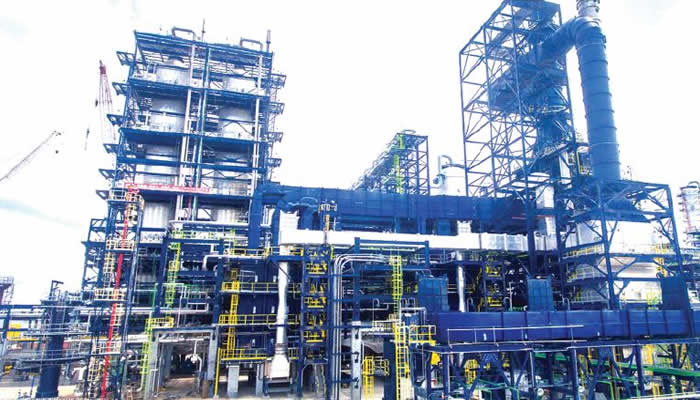Nigeria and Angola have emerged as frontrunners in Africa’s renewed drive toward energy independence, as new projections reveal the continent’s refining capacity could reach 90 per cent, a significant leap from the 45 per cent recorded in the previous year. This development was disclosed in the “State of Africa’s Infrastructure Report 2025,” released by the Africa Finance Corporation (AFC).
The report spotlights an ongoing shift in Africa’s energy narrative, driven by an increasing wave of investments in refinery infrastructure. Nigeria sits at the centre of this transformation, with the newly-commissioned 650,000 barrels-per-day Dangote Refinery and the anticipated revival of the Port Harcourt and Warri refineries forming the backbone of its domestic refining resurgence.
According to the AFC, Africa is inching closer to full self-sufficiency in refined petroleum products, but success depends heavily on urgent upgrades to transportation, storage, and distribution infrastructure. If current and upcoming refinery projects are fully operational and well-integrated, the continent’s dependence on fuel imports could drop dramatically to just 10 per cent, down from 55 per cent in 2023.
The report also highlights that over $16 billion will be required for brownfield investments, which involve upgrading and modernising existing refineries to meet clean fuel standards and reduce reliance on imported fuels. At the same time, greenfield investments, particularly in Nigeria and Angola, are expected to play a pivotal role in addressing future energy demands across the continent.
The AFC emphasised that the two oil-rich nations are strategically positioned to become the continent’s central refining hubs. Their capacity to lead this charge stems not only from their proven crude reserves but also from recent policy reforms aimed at enhancing local refining.
In 2023 alone, Africa imported over half of its petroleum product needs, with 55 per cent of demand met through external supplies. But the tide is turning. The combination of the Dangote Refinery and the phased reopening of Nigeria’s Port Harcourt and Warri refineries, scheduled between 2024 and 2026, has the potential to transform the energy landscape across West and Central Africa within the next few years.
However, the AFC warns that the Dangote Refinery alone cannot meet the continent’s growing fuel needs. Prolonged shutdowns in refineries across Libya, South Africa, and periodic disruptions in Egypt have further exposed the fragility of Africa’s refining network. The report calls for more investment to boost overall capacity, improve access to feedstock, and remove bottlenecks in financing and logistics infrastructure.
In spite of being Africa’s largest oil producer, Nigeria has historically struggled to supply its own refineries due to longstanding export commitments and inadequate domestic crude allocations. The AFC’s analysis indicates that resolving this imbalance is essential for sustainable refinery operations and long-term energy security.
It also points out that for Africa to achieve full fuel security, strategic investments must be made in upgrading existing facilities, developing robust distribution networks, including pipelines, rail systems, and multi-port infrastructure, and building a resilient energy ecosystem that aligns with future energy transitions.
According to the AFC, Africa’s refining future hinges on how well countries can blend policy innovation with financing solutions to unlock the vast potential in their energy sectors. With Nigeria and Angola already laying the groundwork, the report concludes that a new era of energy independence is within reach, provided that infrastructure gaps are swiftly addressed and refineries are supported by reliable supply chains and modernised operational standards.
